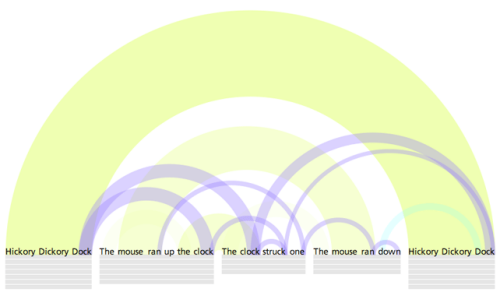I always enjoy when hip-hop artists sample themselves. It makes the music recursive, and for me, “recursive” is synonymous with “good.” You can hear self-sampling in “Nas Is Like” by Nas, “The Score” by the Fugees and many songs by Eric B and Rakim. The most recent self-sampling track to cross my radar is “Unbelievable” by Biggie Smalls, from his album Ready To Die. Here’s the instrumental.
And here’s the full song — contains much explicit language.
The hook samples the line “Biggie Smalls is the illest” from “The What” on the same album. It’s twenty-three seconds in.
Sampling is a severely underappreciated songwriting tool. Even if you have moral or legal issues with sampling from others, sampling from yourself is still a good idea. Biggie’s line about himself being the illest is just part of a verse in “The What.” The producer on “Unbelievable,” the great DJ Premier, was smart enough to recognize that Biggie’s line could stand on its own as a hook. DJ Premier also produced “Nas Is Like,” and built its chorus through similar means.
The word “Unbelievable” itself comes from R Kelly, sped up a little and raised in pitch to sound female. Listen at 0:58.
Sampled vocals aside, the chopped-up keyboard part is the most musically sophisticated aspect of the track. Its original source is “Remind Me” by Patrice Rushen — I’m pretty sure it comes from the end of the solo section around 4:10.
Premier chopped up this little keyboard phrase and resequenced it beyond recognition. The result is a hip angularity that a normal keyboard player would probably not have arrived at organically.
The beat in “Unbelievable” is an old standby, “Impeach The President.”
The string ambiance in the background comes from the very odd Quincy Jones song “Kitten With The Bent Frame.” Listen at 1:08.
Quincy’s record is a favorite for hip-hop producers looking for an uneasy mood.
Here’s a diagram showing the sample genealogy of “Unbelievable.”

The meaning of self-sampling
Like I said above, self-sampling is so interesting to me because it’s recursive, self-referential. Most of the music we like is full of self-reference, and generally, the more self-referential it is, the more structured and meaningful it feels. Even simple-seeming nursery rhymes can be recursive and self-similar. Here’s a visualization by Lee Byron showing self-similarity in the nursery rhyme “Hickory Dickory Dock.”

Self-similarity makes for compelling visual art, too. One reason we find nature attractive is its rich fractal self-similarity. Here’s a leaf I photographed in my neighborhood; notice how the same veiny structure repeats itself at different size scales:

Even very simple recursive mathematical equations can produce stunningly complex, biological-looking forms, like the classic fractal known as the Mandelbrot set.

Recursion isn’t just attractive. It’s fundamental to computer science — self-reference is a key programming technique. Recursion may be essential to the very nature of consciousness itself. Some neuroscientists think that your entire sense of self emerges out of recursive self-referential loops as your brain represents different parts of itself to itself. No wonder recursive music is so fascinating. Keep on sampling yourselves, musicians; let’s see what other recursive truths we can uncover.

Dope Article!